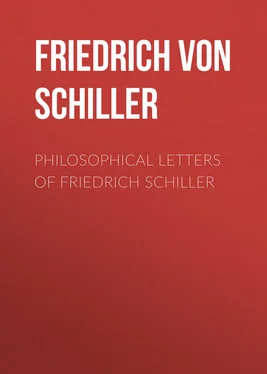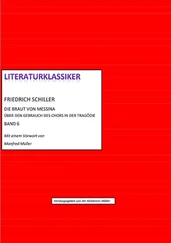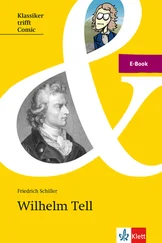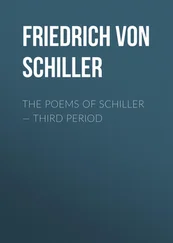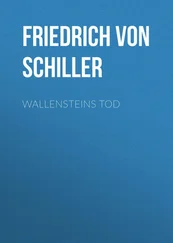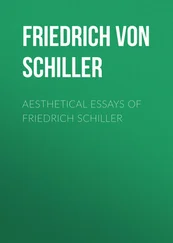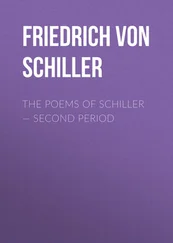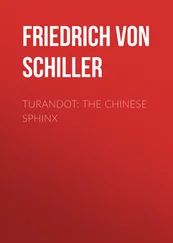Friedrich Schiller - Philosophical Letters of Friedrich Schiller
Здесь есть возможность читать онлайн «Friedrich Schiller - Philosophical Letters of Friedrich Schiller» — ознакомительный отрывок электронной книги совершенно бесплатно, а после прочтения отрывка купить полную версию. В некоторых случаях можно слушать аудио, скачать через торрент в формате fb2 и присутствует краткое содержание. Жанр: Философия, literature_18, foreign_antique, foreign_prose, на английском языке. Описание произведения, (предисловие) а так же отзывы посетителей доступны на портале библиотеки ЛибКат.
- Название:Philosophical Letters of Friedrich Schiller
- Автор:
- Жанр:
- Год:неизвестен
- ISBN:нет данных
- Рейтинг книги:4 / 5. Голосов: 1
-
Избранное:Добавить в избранное
- Отзывы:
-
Ваша оценка:
- 80
- 1
- 2
- 3
- 4
- 5
Philosophical Letters of Friedrich Schiller: краткое содержание, описание и аннотация
Предлагаем к чтению аннотацию, описание, краткое содержание или предисловие (зависит от того, что написал сам автор книги «Philosophical Letters of Friedrich Schiller»). Если вы не нашли необходимую информацию о книге — напишите в комментариях, мы постараемся отыскать её.
Philosophical Letters of Friedrich Schiller — читать онлайн ознакомительный отрывок
Ниже представлен текст книги, разбитый по страницам. Система сохранения места последней прочитанной страницы, позволяет с удобством читать онлайн бесплатно книгу «Philosophical Letters of Friedrich Schiller», без необходимости каждый раз заново искать на чём Вы остановились. Поставьте закладку, и сможете в любой момент перейти на страницу, на которой закончили чтение.
Интервал:
Закладка:
LETTER IV
Julius to Raphael.
I have been looking over my papers this morning. Among them I have found a lost memorandum written down in those happy hours when I was inspired with a proud enthusiasm. But on looking over it how different seem all the things treated of! My former views look like the gloomy boarding of a playhouse when the lights have been removed. My heart sought a philosophy, and imagination substituted her dreams. I took the warmest for the truest coloring.
I seek for the laws of spirits – I soar up to the infinite, but I forget to prove that they really exist. A bold attack of materialism overthrows my creation.
You will read through this fragment, my dear Raphael. Would that you could succeed in kindling once again the extinct flames of my enthusiasm, to reconcile me again to my genius! but my pride has sunk so low that even Raphael's friendly hand can hardly raise me up again.
THEOSOPHY OF JULIUS
THE WORLD AND THE THINKING BEING.
The universe is a thought of God. After this ideal thought-fabric passed out into reality, and the new-born world fulfilled the plan of its Creator – permit me to use this human simile – the first duty of all thinking beings has been to retrace the original design in this great reality; to find the principle in the mechanism, the unity in the compound, the law in the phenomenon, and to pass back from the structure to its primitive foundation. Accordingly to me there is only one appearance in nature – the thinking being. The great compound called the world is only remarkable to me because it is present to shadow forth symbolically the manifold expressions of that being. All in me and out of me is only the hieroglyph of a power which is like to me. The laws of nature are the cyphers which the thinking mind adds on to make itself understandable to intelligence – the alphabet by means of which all spirits communicate with the most perfect Spirit and with one another. Harmony, truth, order, beauty, excellence, give me joy, because they transport me into the active state of their author, of their possessor, because they betray the presence of a rational and feeling Being, and let me perceive my relationship with that Being. A new experience in this kingdom of truth: gravitation, the circulation of the blood, the natural system of Linnaeus, correspond essentially in my mind to the discovery of an antique dug up at Herculaneum – they are both only the reflections of one spirit, a renewed acquaintance with a being like myself. I speak with the Eternal through the instrument of nature, – through the world's history: I read the soul of the artist in his Apollo.
If you wish to be convinced, my clear Raphael, look back. Each state of the human mind has some parable in the physical creation by which it is shadowed forth; nor is it only artists and poets, but even the most abstract thinkers that have drawn from this source. Lively activity we name fire; time is a stream that rolls on, sweeping all before it; eternity is a circle; a mystery is hid in midnight gloom, and truth dwells in the sun. Nay, I begin to believe that even the future destiny of the human race is prefigured in the dark oracular utterances of bodily creation. Each coming spring, forcing the sprouts of plants out of the earth, gives me explanations of the awful riddle of death, and contradicts my anxious fears about an everlasting sleep. The swallow that we find stiffened in winter, and see waking up to life after; the dead grub coming to life again as the butterfly and rising into the air, – all these give excellent pictures of our immortality.
How strange all seems to me now, Raphael! Now all seems peopled round about me. To me there is no solitude in nature. Wherever I see a body I anticipate a spirit. Wherever I trace movement I infer thought.
Where no dead lie buried, where no resurrection will be, Omnipotence speaks to me this through His works, and thus I understand the doctrine of the omnipresence of God.
IDEA.
All spirits are attracted by perfection. There may be deviations, but there is no exception to this, for all strive after the condition of the highest and freest exercise of their powers; all possess the common instinct of extending their sphere of action; of drawing all, and centring all in themselves; of appropriating all that is good, all that is acknowledged as charming and excellent. When the beautiful, the true, and the excellent are once seen, they are immediately grasped at. A condition once perceived by us, we enter into it immediately. At the moment when we think of them, we become possessors of a virtue, authors of an action, discoverers of a truth, possessors of a happiness. We ourselves become the object perceived. Let no ambiguous smile from you, dear Raphael, disconcert me here, – this assumption is the basis on which I found all that follows, and we must be agreed before I take courage to complete the structure.
His inner feeling or innate consciousness tells every man almost the same thing. For example, when we admire an act of magnanimity, of bravery and wisdom, does not a secret feeling spring up in our heart that we are capable of doing the same? Does not the rush of blood coloring our cheeks on hearing narratives of this kind proclaim that our modesty trembles at the admiration called forth by such acts? that we are confused at the praise which this ennobling of our nature must call down upon us? Even our body at such moments agrees with the attitude of the man, and shows clearly that our soul has passed into the state we admire. If you were ever present, Raphael, when a great event was related to a large assembly, did you not see how the relater waited for the incense of praise, how he devoured it, though it was given to the hero of his story, – and if you were ever a relater did you not trace how your heart was subject to this pleasing deception? You have had examples, my dear Raphael, of how easily I can wrangle with my best friend respecting the reading aloud of a pleasing anecdote or of a beautiful poem, and my heart told me truly on these occasions that I was only displeased at your carrying off the laurels because these passed from the head of author to that of the reader. A quick and deep artistic appreciation of virtue is justly held to be a great aptitude for virtue, in the same way as it is usual to have no scruple in distrusting the heart of a man whose intelligence is slow to take in moral beauty.
You need not advance as an objection that, frequently, coupled with a lively perception of a perfection, the opposite failing is found to coexist, that evil-doers are often possessed with strong enthusiasm for what is excellent, and that even the weak flame up into enthusiasm of herculean growth. I know, for example, that our admired Haller, who unmasked in so manly a spirit the sickly nothingness of vain honors; a man whose philosophical greatness I so highly appreciated, that he was not great enough to despise the still greater vanity of an order of knighthood, which conferred an injury on his greatness. I am convinced that in the happy moment of their ideal conceptions, the artist, the philosopher, and the poet are really the great and good man whose image they throw out; but with many this ennobling of the mind is only an unnatural condition occasioned by a more active stirring of the blood, or a more rapid vibration of the fancy: it is accordingly very transient, like every other enchantment, disappearing rapidly and leaving the heart more exhausted than before, and delivered over to the despotic caprice of low passions. I expressly said more exhausted than before, for universal experience teaches that a relapsing criminal is always the most furious, and that the renegades of virtue seek additional sweets in the arms of crime to compensate for the heavy pressure of repentance.
Читать дальшеИнтервал:
Закладка:
Похожие книги на «Philosophical Letters of Friedrich Schiller»
Представляем Вашему вниманию похожие книги на «Philosophical Letters of Friedrich Schiller» списком для выбора. Мы отобрали схожую по названию и смыслу литературу в надежде предоставить читателям больше вариантов отыскать новые, интересные, ещё непрочитанные произведения.
Обсуждение, отзывы о книге «Philosophical Letters of Friedrich Schiller» и просто собственные мнения читателей. Оставьте ваши комментарии, напишите, что Вы думаете о произведении, его смысле или главных героях. Укажите что конкретно понравилось, а что нет, и почему Вы так считаете.
